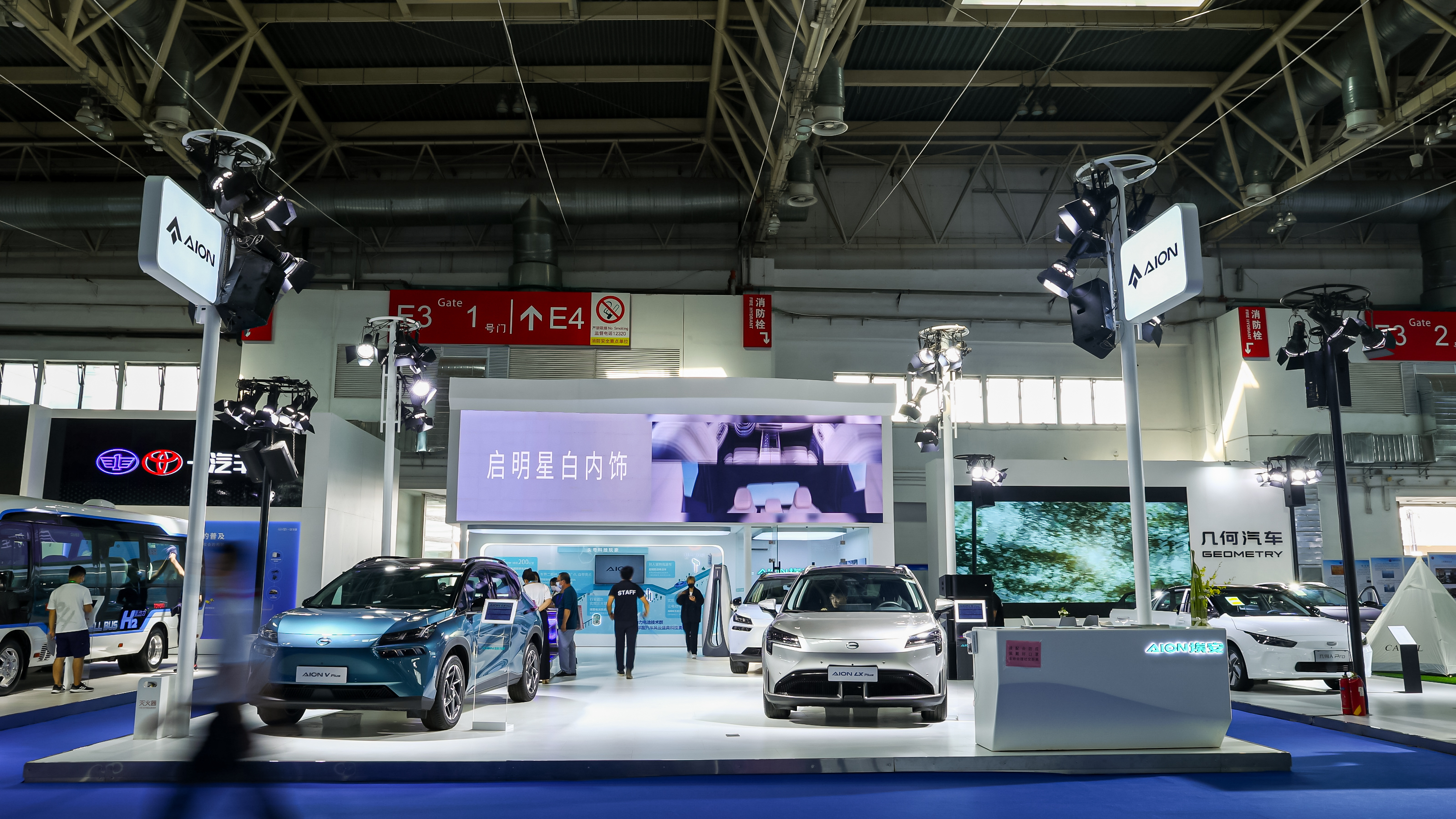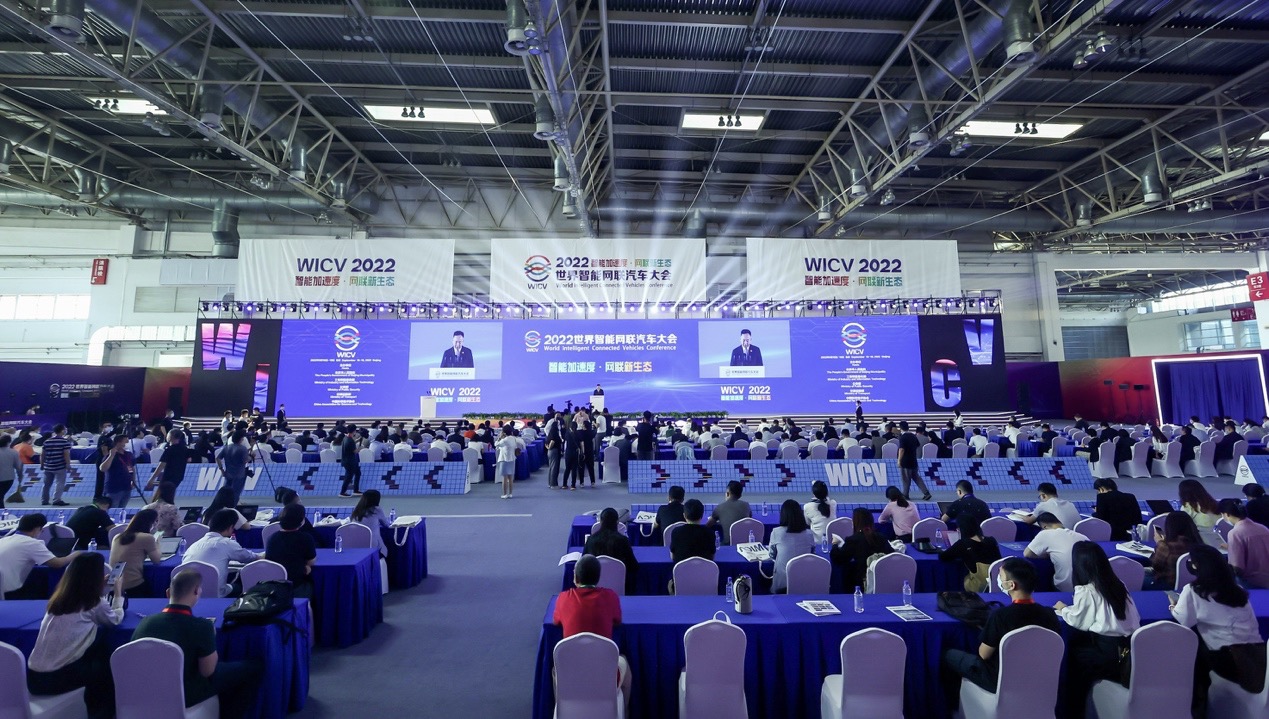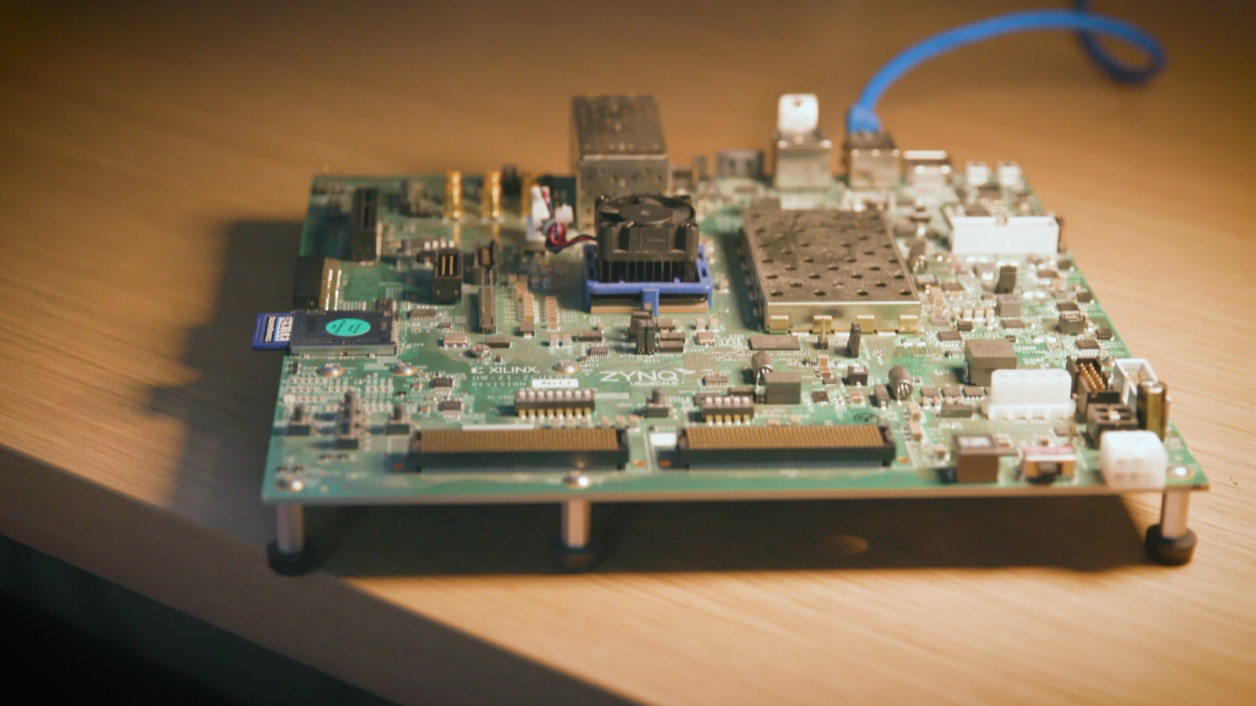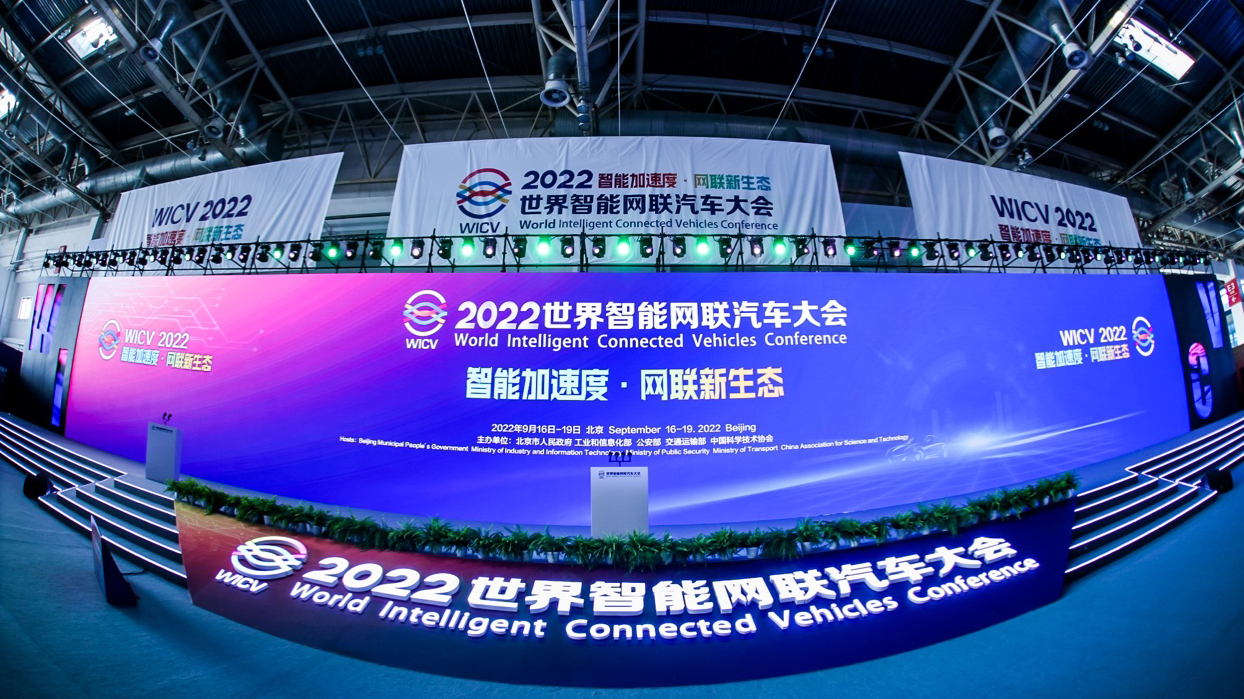03:33

Experts say the global shortage of semiconductor chips for vehicles is being exacerbated by structural factors that have increased the need for even more chips. They point to the higher demand for smart vehicles, which require more chips.
Meanwhile, China has demonstrated strong participation in the development and sales of smart vehicles this year.
Sales of vehicles with combined driving assistance functions in China reached nearly 3 million in the first half of 2022, Chinese Vice Minister of Industry and Information Technology Xin Guobin said at the World Intelligent Connected Vehicles Conference (WICV) last weekend.
That accounted for 32.4 percent of all passenger vehicle sold during that period and reflects a year-on-year increase of 46.2 percent.

The 2022 World Intelligent Connected Vehicles Conference held in Beijing, China, from September 16-19. /WICV
The 2022 World Intelligent Connected Vehicles Conference held in Beijing, China, from September 16-19. /WICV
Car manufacturers and experts at WICV pointed out that real competition among companies in the intelligent car sector lies in its "brain." The "brain" refers to the chip that a particular smart car uses and how compatible and responsive it is to software ranging from its overall operation to the entertainment system.
However, the chip shortage first sparked by the COVID-19 pandemic has persisted and supplies have lagged far behind the high demand and fast-paced development. People face long wait times for purchase orders of electric vehicles to be completed.
Experts say chip developers and car manufacturers need better communication.
Cao Xinkang, general manager of MathWorks China, said that many Chinese chip companies have reached out for help hoping to use the model-based design method to develop application examples for automotive customers.
"This phenomenon is happening all over the world. Intelligent networked vehicles have brought OEMs (original equipment manufacturers) and chip companies closer than ever before. Some people joked that chip companies are now Tier 1 suppliers," he said.

A view of a chip being tested /MathWorks
A view of a chip being tested /MathWorks
What it really means here is when it comes to electric and intelligence-connected vehicles, the process of building a smart vehicle involves multiple parties and several different companies supplying software, hardware, and semiconductors.
Marcus Bollig, managing director of the German Association of the Automotive Industry, called for dialogues across sectors and companies.
"During these challenging times, such as the pandemic, high energy prices, and supply chain disruptions, we need to seek dialogue especially when it comes to difficult questions and different opinions," he said.
While waiting on chip supply to return, companies say more can be done in compatibility and adaptability of the software on smart cars.
"The entire industry is re-examining current challenges under the theme of software-defined vehicles. Both local auto suppliers and auto chip companies need to strive and embrace cooperation and innovation in the auto industry," said Cao.
The smart-car manufacturing sector in China is enjoying government subsidies at the moment, and companies say this is a great time to jump on board and get a foot in the market.
"They should integrate into the research and development system of the global auto industry, so they can compete on the same level as multinational chip companies," said Cao.
According to J.P Morgan's latest research on the global chip shortage, increased supplies should become available through the second half of this year, but still may not meet current demand. Volkswagen projects that semiconductor supply is not likely to meet auto industry demand until 2024.
Exhibitors and car brands at WICV say they are working hard to get ahead in software development and hardware features before more consumers show up for smart vehicles.

Banners and posters at the 2022 World Intelligent Connected Vehicles Conference held in Beijing, China. /WICV
Banners and posters at the 2022 World Intelligent Connected Vehicles Conference held in Beijing, China. /WICV
The conference wrapped on Monday after a four-day discussion on the development of smart vehicles, especially highly automated driving vehicles in China.
China said it will roll out more policies and deepen international exchanges to create a better environment for the burgeoning sector.

